
Vauxhall Astra GSe PHEV Review

Introduction
Don’t be distracted by the GSe badge on the back of this Vauxhall Astra. While it purports to be the sporty model in the range, it can’t hold a candle to the VXR models or even the boisterous GTE cars of the 80s and 90s that still set pulses racing.
This new car channels the spirit, if not replicating it, which means the raunchy, punchy and thirsty 2.0-litre petrol engines have gone, replaced by an electrified plug-in hybrid (PHEV) powertrain — a stepping stone to the complete electrification of the Vauxhall range by 2028, unless Rishi makes some unexpected announcement that changes the playing field.
Select's rating score* - 3.7 / 5
At a Glance
The Astra GSe sits right at the top of the range, taking the plug-in hybrid powertrain from the Ultimate specification Astra and adding some sporting style and another 45hp, taking it to 225hp — 70hp more than the lairy Astra GTE of the 1990s!
Drop the ‘e’ from the name, choose the Astra GS, and you can still get some of the sporting attributes, but with the lower output engine and a lower price tag.
And those three are the only options if you want an Astra PHEV, with the GSe being the only model in the entire Astra range to give you more than 200hp to play with.
It promises the highest power output, the most luxurious levels of equipment (ish), and unique hot-hatch styling, but with the largest price tag. Let’s find out if it delivers on those promises, and if it's worth the money…
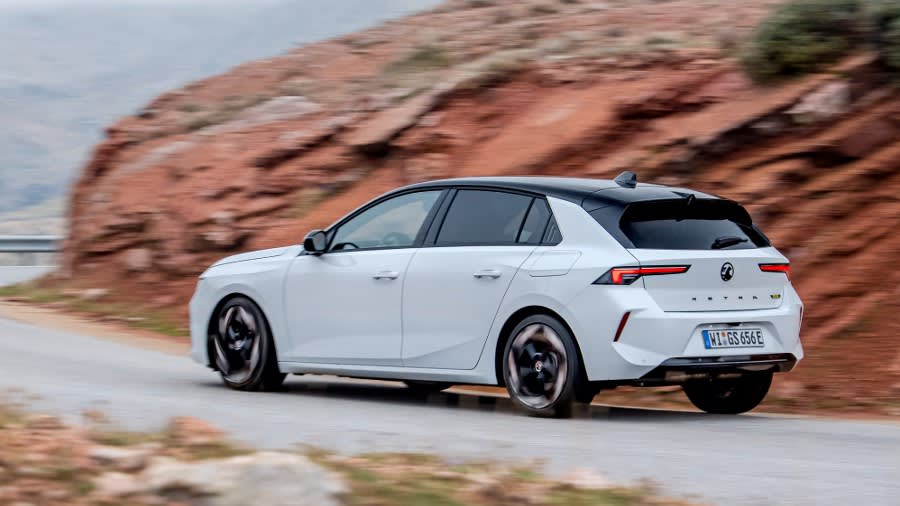
Key Features
While Vauxhall insists that GSe stands for 'Grand Sport electrified', it’s undermining its case with the cosmetic updates it’s made to the Astra. Vauxhall says the GSe ‘radically redefines pure performance,’ which is a rather bold claim, but it does get special bumpers at both ends of the car, unique 18-inch gloss black alloy wheels, and some GSe badging.
Unless slightly changed styling is the main reason for picking a car, then you’ll need to know about more important details to decide if it’s the right model for you.
As this is a plug-in hybrid, the most important features tend to relate to money. Those in the city might think they’ll avoid tolls for driving on the roads, but as there’s a petrol engine, it’s not exempt from the London Congestion Charge, although, as with any modern vehicle, it does bypass the ULEZ fees.
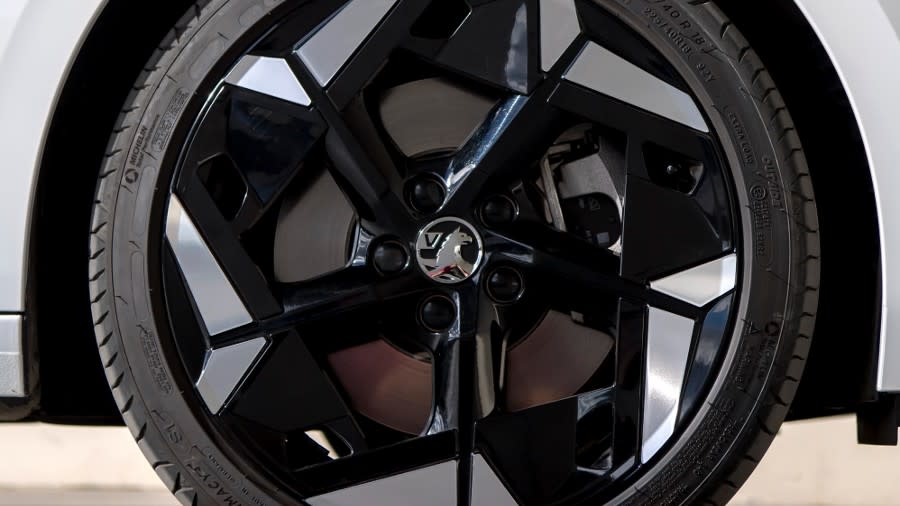
Where you will save is on fuel bills. With a realistic 30-35 miles of range from the battery pack (or 40 miles, if you believe the official figures), there’s a good chance that you’ll never need to use the petrol engine. Even on a standard household tariff, that 35 miles will only cost £3.50 in electricity (or less on a special electric car tariff), which is the financial equivalent of about 70mpg.
Company car drivers will take home huge benefits, too, with the benefit in kind rate of 8% keeping company car tax bills low. A standard rate taxpayer will face a bill of about £650, against the petrol-powered GS model (which lags almost 100hp behind in the power stakes) and its tax bill of around £1,800.
Plug-in hybrids get a bad rap, considered by many to be a halfway house that fails to offer the benefits of a traditional engine while also failing to provide the eco benefits of a fully electric car. And that’s partly true if you don’t suit a PHEV. But, if your driving habits match the car's abilities — so you drive around 30 miles a day on average but need the surety of long-range capability at times — then you’ll save considerably by opting for a plug-in.
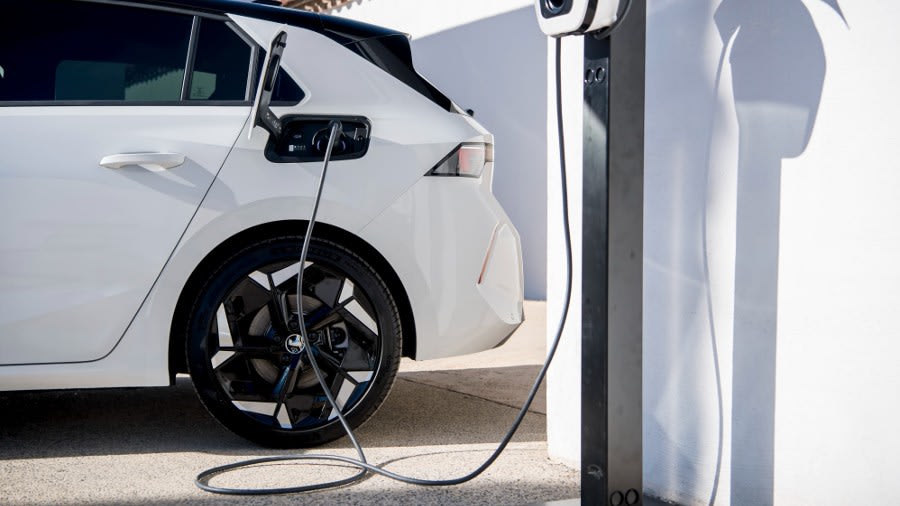
Performance & Drive
The hybrid system might seem familiar, as it’s been previously fitted to Citroen and Peugeot models. The 1.6-litre turbocharged petrol engine and electric motor combine to provide 225hp and 360Nm of torque, which is enough to take the Astra from a standstill to 62mph in 7.3 seconds. We’re clearly a long way off hot-hatch territory here, but it’s warm enough to offer a little entertainment.
Vauxhall is keen to remind us all that the GSe isn’t a performance model and instead offers something a little more invigorating than the standard car. It’s a Rogan Josh, not a Vindaloo.
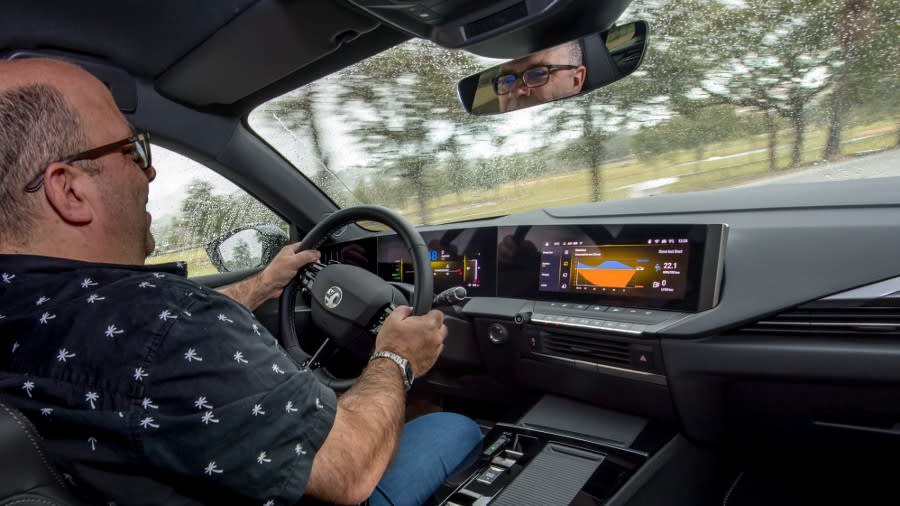
It’s quite clear, then, that this is an uprated Astra rather than a heavily re-engineered model, and it gets away with it as the Astra was a reasonably capable car in the first place. It’s not massively involving to drive — it’s unlikely you’ll take the keys for a late-night drive, just because — but there’s plenty of grip, especially from the front, and it remains well-balanced and mostly free from body roll. Throw it around some tight corners, and it’s almost entertaining. Almost. Still, it goes quicker, harder and longer than most drivers will need it to.
Unless the hybrid powertrain steps in first, that is. It’s not a bad system, seamlessly switching from petrol to electric power or combining both when it feels like it, but only to a point. Start demanding more than meandering motoring, and it can’t keep up, with any heavier than usual press of the throttle resulting in a long pause while the car works out what to do, and how much of the electric motor’s 110hp and petrol engine’s 180hp it’s going to let you have at once. When it favours the engine, it's loud and unpleasant, made worse by an eight-speed gearbox that hesitates too frequently or changes gear when you don’t expect or want it to.
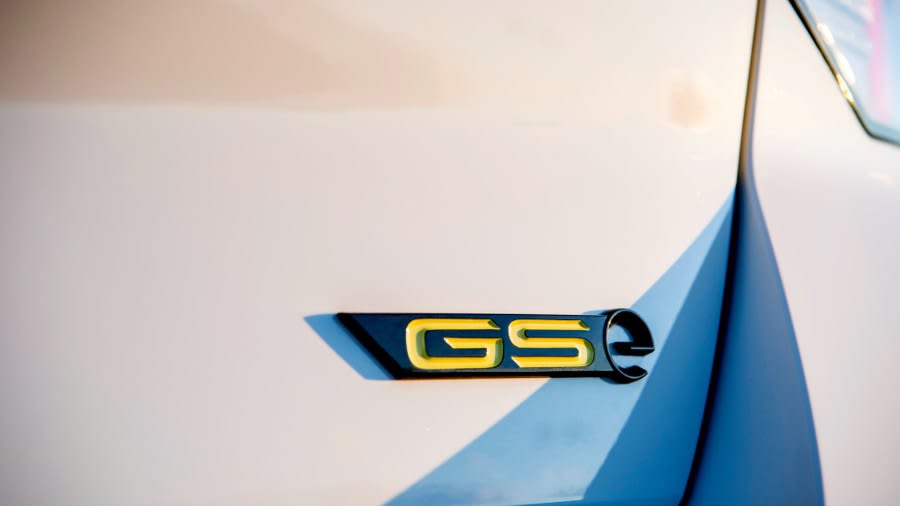
Leave the cross-country blast to one side, and there’s a remarkable transformation. The Astra GSe becomes a peaceful and refined car, barely making its presence felt. The suspension feels softer at lower speeds, absorbing the bumps and imperfections of the roads nicely.
It’s even better in town, where it favours electric power, taking away more noise and vibration and making it a relaxing cabin in which to crawl through the city.
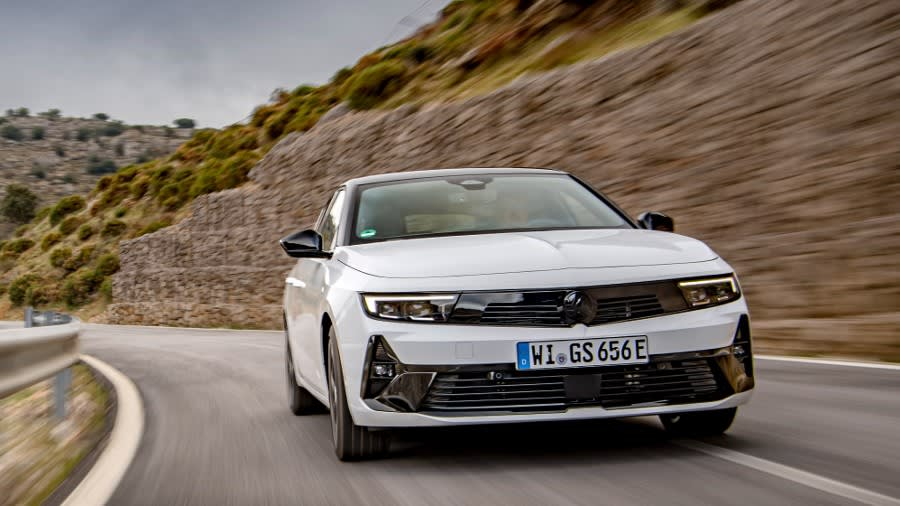
Running Costs
With a list price of £41,200, the Astra GSe just edges into the higher road tax category, so buyers will need to stump up £560 a year for the first five years of ownership. Business users will make some of that back as, with emissions rated at 25g/km, it falls into an 8% BIK band for company car tax.
According to official figures, the 12.4kWh battery pack will take the Astra for 40 miles before relying solely on petrol power, and that will be possible with some particularly gentle driving. Economy of 256mpg is promised, but that leans very heavily into having a fully charged battery pack. Theoretically, if you keep the battery topped up and cover only short journeys, you’ll never need to touch any petrol.
Our testing, which was rather more, er, vigorous than a regular driver might subject the car to, returned just over 50mpg.
Every Astra is backed by a three-year warranty, which isn’t particularly generous, and looks miserly when combined with a 60,000-mile limit.
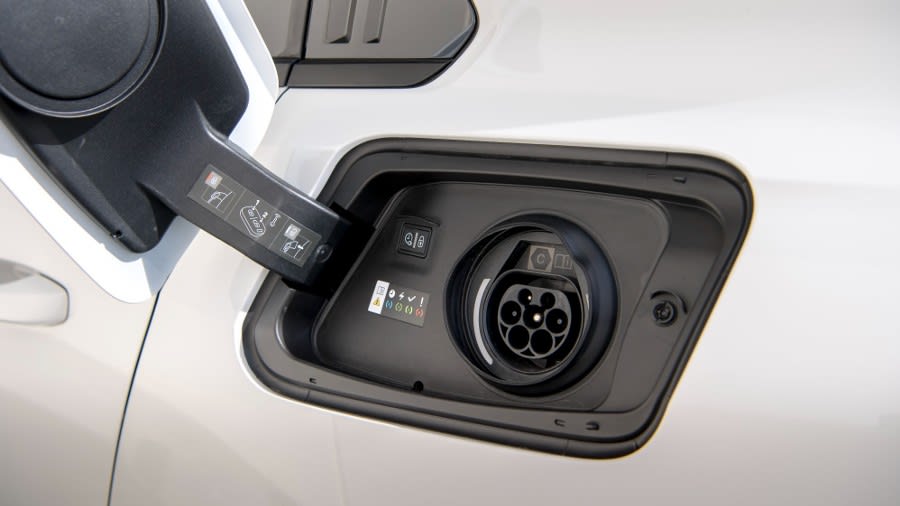
Interior
Clues that the GSe might not be the hottest hatch ever are evident inside, where the GSe-specific steering wheel and Alcantara-trimmed sports seats are the only significant updates.
Everything else is just like a regular Astra, so you get a distinctive black panel that runs across the dashboard and hides the driver’s instrument panel — digital, of course — and infotainment centre. There are a handful of physical buttons and switches, which is nice to see, but Vauxhall has gone heavy on embracing the digital age.
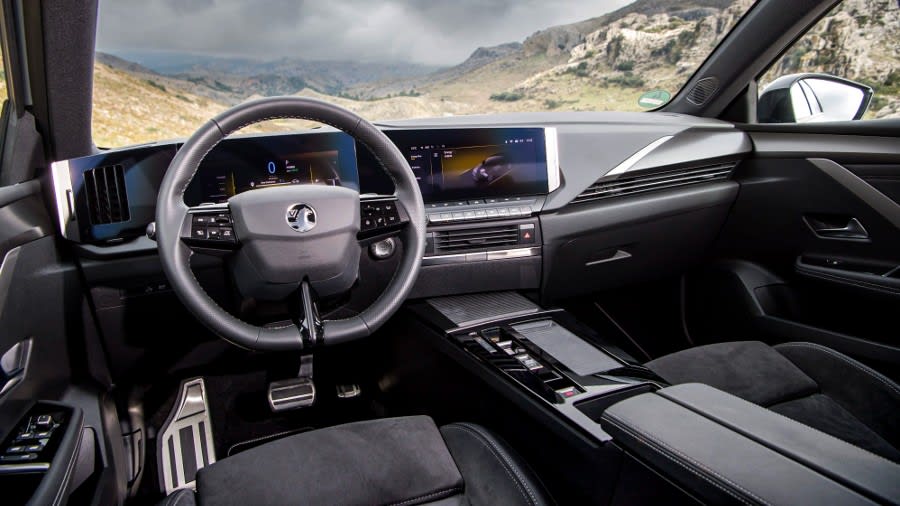
It’s well equipped, including a head-up display, 360-degree cameras, heated seats and steering wheel, adaptive cruise control, wireless phone charger, and wireless Android Auto and Apple CarPlay, so you won’t need to look too hard at the options list.
Space is acceptable, but nothing too noteworthy. Up front, you’ve got enough room for all but the tallest drivers, while those in the slightly cramped back will be less pleased with their lot. The boot is small, though, at 352 litres. That’s quite a drop from the rest of the Astra range, which can squeeze another 70 litres, thanks to not needing to hide a battery pack under the boot floor.
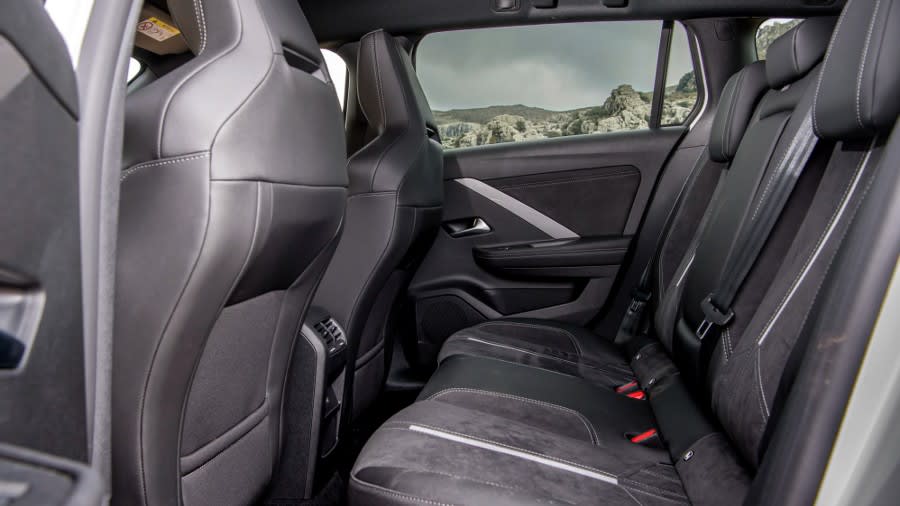
Safety
Euro NCAP has driven, crashed and measured every bit of the Astra, giving it four stars out of five for safety back in 2022. While it performed well for adult and child occupants, it didn’t score so well for the protection of pedestrians or for its included safety tech, where the automatic emergency braking system was criticised for performing ‘only marginally in tests of its response to other vehicles.’
Vauxhall has included a lot of safety features in the plug-in hybrid GSe model tested here. Alongside the automatic emergency braking, there’s also adaptive cruise control, lane departure warning and assist, traffic sign recognition, driver drowsiness alert, and rear cross-traffic alert, amongst other technologies.
For day-to-day driving, there are parking sensors at the front and rear, a 360-degree camera, a head-up display and adaptive LED headlights.
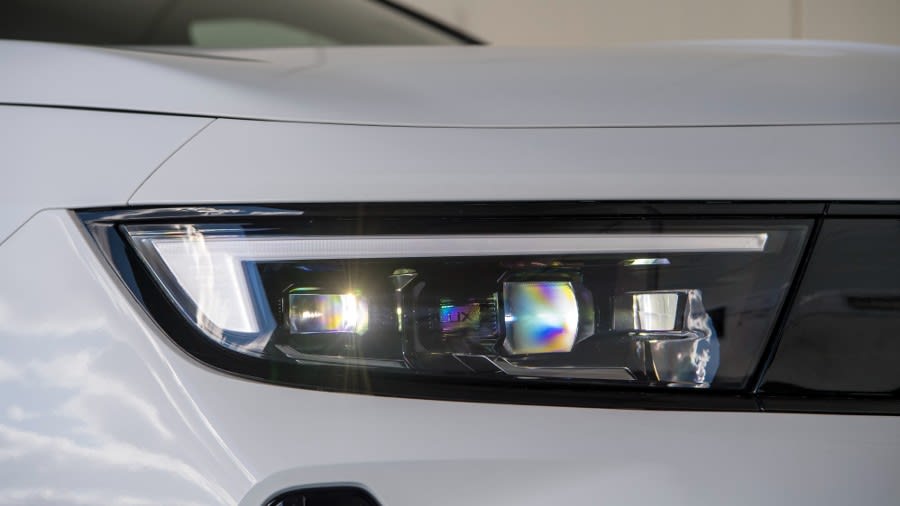
Options
The GSe model comes well equipped, missing only the panoramic sunroof you’ll find on the Ultimate specification model. Weirdly, though, you can’t order one for the GSe model.
Outside of choosing the paint job, there are only two choices to make with the Astra GSe. Do you want Nappa leather trim (at £2,100, probably not), and do you want a 7.4kW charger for £500? It takes just over four hours to charge the battery from a regular three-pin socket, so that’s probably not an essential purchase either.
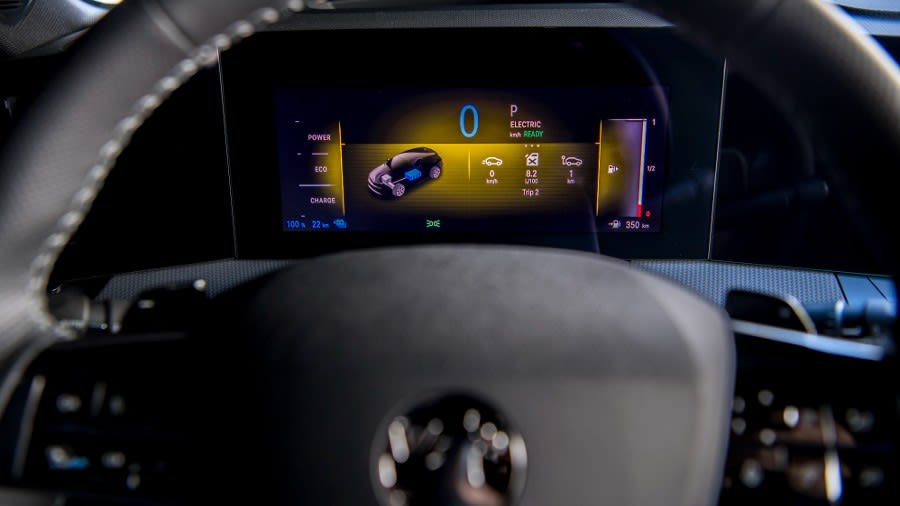
Rival Cars
SEAT’s sporty sibling, CUPRA, will provide a Leon (below) in PHEV form, which goes head-to-head with the Astra GSe. You can, however, enjoy power of up to 310 PS with a CUPRA Leon, which trumps the sportiest Astra.
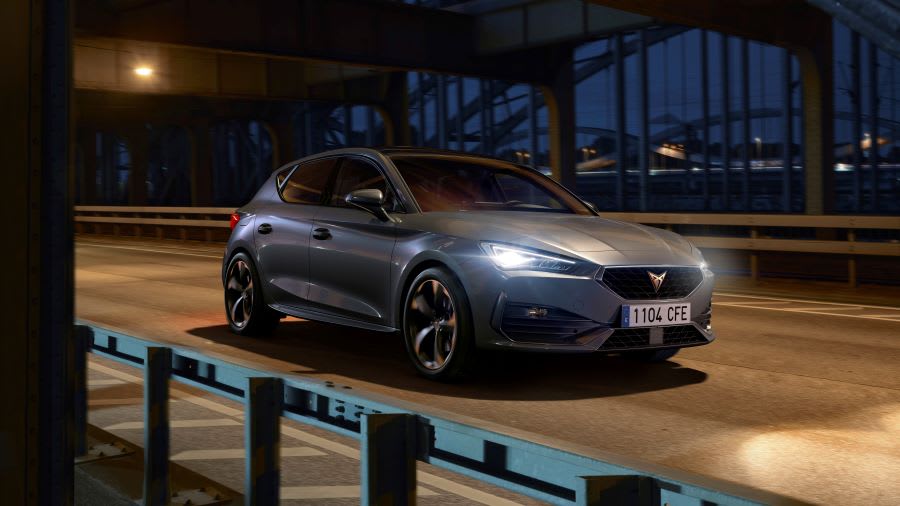
The broadly similar Volkswagen Golf GTE is quick enough to entertain, but the extra weight of the battery pack and motor leaves it feeling held back a little. It’s quite expensive, too.
Vauxhall’s parent company, Stellantis, puts the same hybrid power into an array of models, including the DS 4 E-Tense, the Citroen C5 Aircross and the Peugeot 308, which are all capable models that have much the same ups and downsides as the Astra.
.jpg)
Verdict
Asking £41,200 for an Astra makes you wonder how far you can push pricing, but then it’s really the monthly payments buyers are bothered about. The list price might be just £150 more than the lower-power but plusher Ultimate model, but it works out to be about £25 a month less* to have the GSe, such are the machinations of depreciation and finance.
That’s still plenty more than a regular model with the 1.2-litre petrol engine, but you get a lot more for your money, will save on fuel bills, and company car buyers will save a four-figure amount on tax each year.
So, the head can be afforded the opportunity to make a decision the heart agrees with on this occasion. Just be honest with yourself, and don’t expect to be driving a modern-day GTE.
.jpg)
*Prices include VAT. Credit is Subject to Status, Ts and Cs and Arrangement Fees apply. Excess mileage may apply. Stock levels and prices correct as of 27/09/23.
Where to next?
View latest Vauxhall Astra GSe PHEV leasing deals - from just £523.73 per month inc VAT**.
Call us on 0118 3048 688 or hit the green 'Enquire' button for more details.
Looking for a great leasing deal? Check out our incredible range of car lease deals.
New Hatchback? Read our latest Car Reviews and find the right model for you.
Want to know more about leasing? Take a look at our comprehensive Leasing Guides.
Interested in everything motoring? Why not catch up on all the latest Car Leasing News.
**Score based on Select’s unique meta score analysis, taking into account the UK’s top leading independent car website reviews of the Vauxhall Astra GSe PHEV.
**Correct as of 08/10/2023. Based on 9 months initial payment, 10,000 miles annually over a 48 month lease. Initial payment equivalent to 9 monthly payments or £4,794.57 (Plus admin fee) Ts and Cs apply. Credit is subject to status.



















